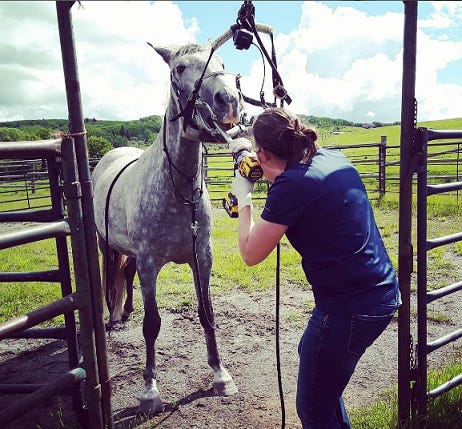Starting an equine dental practice can be a fulfilling venture, allowing you to work closely with horses while providing a vital service. However, the costs associated with setting up a new practice can be daunting. With careful planning and strategic investments, you can establish your Equine Dental Practice on a budget without compromising the quality of care you offer. Here are some key steps to help you get started.
1. Create a Business Plan
A detailed business plan is the foundation of any successful practice. Outline your services, target market, pricing strategy, and marketing plan. This plan will guide your decisions and help you stay on track. It also comes in handy when seeking financing or partnerships.
2. Obtain the Necessary Education and Certification
Investing in your education is crucial. If you are not already certified, enroll in a reputable equine dental program. Certification not only boosts your credibility but also ensures you are equipped with the necessary skills and knowledge. Look for programs that offer financial aid or scholarships to help reduce costs.
3. Choose Your Location Wisely
Consider starting as a mobile practice to save on the costs of renting and outfitting a physical clinic. A mobile practice allows you to reach a broader client base and operate with lower overheads. Invest in a reliable vehicle and customize it to store your tools and equipment efficiently.
4. Purchase Essential Equipment
Quality equipment is a critical investment. To manage costs, prioritize purchasing essential tools first. These include:
Dental Floats: Manual or power floats, with power floats being more expensive but faster and less physically demanding.
Speculums: Necessary for safely examining and working on a horse's mouth.
Headlamps and Mirrors: For better visibility inside the horse's mouth.
Sedation Equipment: If you are licensed to administer sedation.
Consider buying second-hand equipment in good condition or leasing equipment to spread out the costs. Always inspect used equipment thoroughly to ensure it is in safe working order.
5. Build a Network and Client Base
Networking is essential to building your client base. Connect with local veterinarians, equine trainers, stable owners, and other professionals in the equine industry. Offer your services at local equine events and volunteer for community events to gain exposure.
6. Market Your Services
Effective marketing doesn’t have to be expensive. Utilize social media platforms like Facebook, Instagram, and LinkedIn to promote your services. Create a professional website with detailed information about your services, pricing, and contact information. Collect and display testimonials from satisfied clients to build trust with potential customers.
7. Continue Your Education
Staying updated with the latest techniques and advancements in equine dentistry is vital. Many professional organizations offer continuing education courses that can be more affordable than formal academic programs. Online courses and webinars are also cost-effective ways to continue learning without the need to travel.
8. Manage Your Finances
Keep a close eye on your expenses and revenue. Use accounting software to track your finances and help you identify areas where you can cut costs or need to invest more. Consider hiring a part-time accountant or using financial consulting services if you need assistance.
9. Offer Additional Services
Expand your service offerings to include routine dental check-ups, emergency dental care, and consultations. Diversifying your services can increase your revenue streams and attract a broader range of clients.
10. Seek Mentorship
Find a mentor in the equine dental field who can offer guidance, advice, and support as you establish your practice. A mentor can help you navigate challenges and provide insights based on their experiences.
Setting up an Equine Dental practice on a budget requires careful planning, strategic investments, and continuous learning. By prioritizing essential equipment, leveraging affordable marketing strategies, and building a solid network, you can establish a successful practice without breaking the bank. Remember, the key to long-term success is providing exceptional care and building strong relationships with your clients and the equine community.




